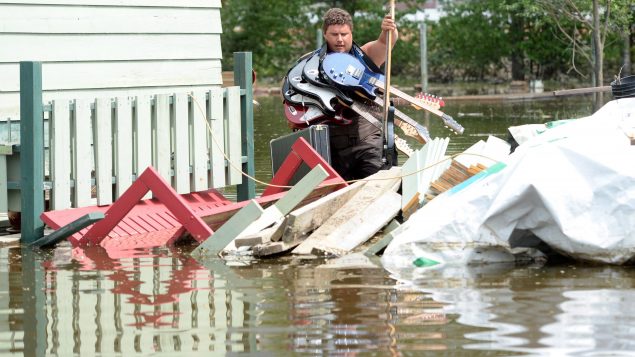The international community must step up its efforts to adapt to climate change and build up resilience in the face of growing impacts of global warming or face mounting costs, damages and losses, according to a new UN Environment Programme (UNEP) report.
The UNEP Adaptation Gap Report 2020 finds that while many countries have made progress in planning for climate change adaptation, there are significant financing shortfalls in getting them to the stage where they provide real protection against droughts, floods and rising sea levels.
The 2020 World Disasters Report by the International Committee of the Red Cross shows that 1.7 billion people around the world have been affected by climate and weather-related disasters during the past decade.
Last year also saw devastating wildfires from Australia to the Russian Arctic and extreme storms battering the Americas, island nations in the Indo-Pacific and wreaking havoc in Africa.
The U.S. National Oceanic and Atmospheric Administration (NOAA), ranked 2020 as the second-hottest year on record for the planet, knocking 2019 down to third hottest.
The world’s seven-warmest years have all occurred since 2014, with 10 of the warmest years occurring since 2005, according to NOAA scientists.
“The hard truth is that climate change is upon us,” said Inger Andersen, executive director of UNEP.
“Its impacts will intensify and hit vulnerable countries and communities the hardest – even if we meet the Paris Agreement goals of holding global warming this century to well below 2 C and pursuing 1.5 C.”
A key pillar of Paris Agreement

Though countries have made progress in planning for climate change adaptation, there are significant financing shortfalls in getting them to the stage where they provide real protection against droughts, floods and rising sea levels, a new UN environment report has found. (iStock)
Climate change adaptation – building up countries’ and communities’ resilience in the face of climate change impacts – is a key pillar of the Paris Agreement on Climate Change.
The agreement requires its signatories to implement adaptation measures through national plans, climate information systems, early warning, protective measures and investments in a green infrastructure.
The report estimates that annual adaptation costs in developing countries are $70 billion US, but the figure could reach up to $300 billion in 2030, and $500 billion in 2050.
Focus on nature-based solutions

Saplings given away as part of Ecology Ottawa’s tree giveaway program are pictured during an announcement on June 5, 2019 — World Environment Day — in Ottawa. More and more experts say supporting tree planting forestation projects is an accessible way for people to make a tangible, measurable difference in the fight against global warming. (Justin Tang/The Canadian Press)
The report places a special focus on nature-based solutions as low-cost options that reduce climate risks, restore and protect biodiversity and bring benefits for communities and economies.
Initiatives ranging from restoring degraded tropical forests, coastal mangroves, floodplains and prairie grasslands to planting trees in city parks are increasingly being recognized as an effective approach to addressing climate risks.
However, the report finds that funding of nature-based projects constitutes only a tiny fraction of funds dedicated to climate change adaptation. An analysis of four global climate funds that spent $94 billion on adaptation projects found that just $12 billion went to nature-based solutions.
Stepping up climate action

Canada’s tax on carbon emissions has encouraged power generators to switch from burning coal to green power sources like wind energy. (iStock)
The report underlines that efforts to cut greenhouse gas emissions will reduce the impacts and costs associated with climate change.
Achieving the 2 C target of the Paris Agreement could limit losses in annual economic growth to up to 1.6 per cent, compared to 2.2 per cent for the 3 C trajectory, the report says.







For reasons beyond our control, and for an undetermined period of time, our comment section is now closed. However, our social networks remain open to your contributions.